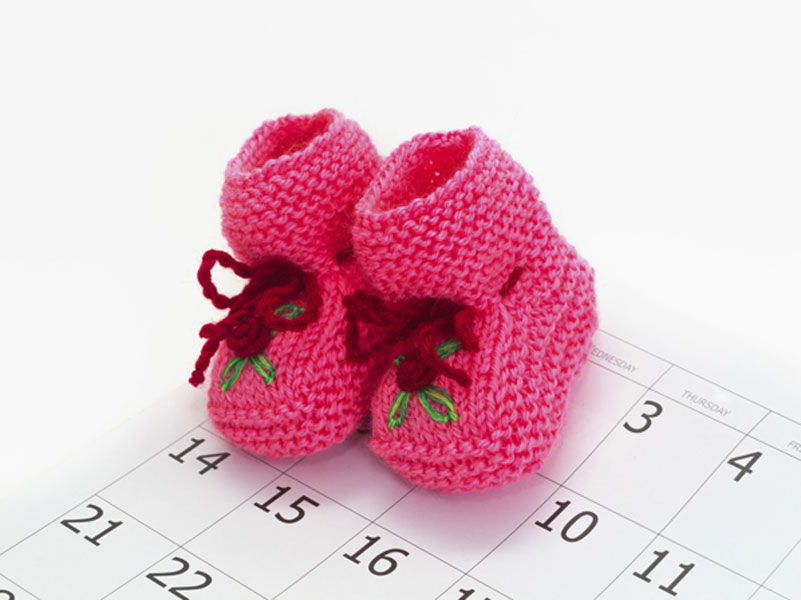Por Consumer Reports
-
Hispanic Women and Premature Births
Each year in the United States, nearly half a million babies are born early. About 11 percent of births to Hispanic women are premature, compared to about 10 percent of births by non-Hispanic white women and Asian women. According to the government, better prenatal care and information is needed to prevent premature births.

Lower the Risk of a Premature Birth
If you already delivered another baby early, are at a high risk for doing so, or have a high risk pregnancy, learn the signs of preterm labor. You can ask your doctor about medicine and other ways to prevent it so that your delivery happens at the right time.

The Golden Rules
There are ten important points to keep in mind during your pregnancy, labor, and delivery. They will help you and your baby get off to a healthy start during this unforgettable stage.

1. Learn Your Due Date
If you aren't sure when you conceived your baby, there are tools on the Internet that calculate the date when your baby is due based on the first day of your last menstrual period. If you don't remember when that was, an ultrasound can provide a probable due date.

2. Stay Healthy
Good health is vital to any future mom. According to the Mayo Clinic, the best way to consume vitamins and minerals during this period is by following a healthy and balanced diet. However, you might need an extra intake of certain key nutrients, such as folic acid and iron.

Prenatal Supplements
Folic acid helps prevent defects in the baby's brain and spine. Iron contributes to the baby's growth and development and prevents anemia in the mother, a condition in which the body's red blood cell count is too low, and iron may decrease the risk of low birth weight.

3. Avoid Risky Habits
Staying away from alcohol and tobacco and maintaining a healthy weight should be the ABCs of every pregnant woman. If you suffer from a chronic illness such as diabetes or cardiovascular or respiratory disease and you are taking medication, make sure to check with your doctor since many drugs are not compatible with pregnancy.

4. Stay Away From Heavy Metals!
Avoid exposure to these harmful substances, such as lead and mercury, since they can build up in the organism and may increase the risk of miscarriage, premature births, and can affect your baby's normal development.

Where Are Heavy Metals Hiding?
Paint, particularly the kind used on ceramic dishes and other pottery, can contain lead, which is why it's best to avoid using these to serve food. Mercury can be found in many varieties of fish. The Government recommends that most women avoid high-mercury fish including swordfish, shark and king mackerel. Consumer Reports says that pregnant women should not eat any tuna.

Alternative Medicine: Proceed With Caution
Certain traditional Latin American remedies such as "greta," a yellow powder used to treat upset stomach and indigestion, and "azarcon," an orange substance also used for indigestion, have a lead content of almost 100%.

5. Make a Birth Plan
Write down your probable due date, and share it with your health care providers and hospital staff. And make sure to have a backup plan in mind in case things don’t go as planned.

Intrigued by a Home Birth?
The National Center for Health Statistics the U.S., out-of-hospital births have increased by about 56 % — from .87% en 2004 to 1.36% en 2012. In Hispanic women, the percentage of births increased by about 21%, going from 0.38% in 2004 to 0.46% in 2012. According to the Government, Hispanic women had the highest proportion of out-of-hospital births in 1990 but the lowest proportion in 2012.

6. Consider Using a Midwife or Doula
If your pregnancy is low-risk, consider using a certified midwife for prenatal appointments, delivery, and care after your baby is born. A trained birthing assistant, or doula, can also provide you with fundamental physical and emotional support.

7. Ask to Turn a Breech Baby
In your eighth month of pregnancy, there is not much room left in the uterus and 97% of babies take a head-down position to optimize space. But some may remain in a breech position - with the feet facing down - , complicating natural birth. Ask if a breech baby can be turned. This procedure should be done in a hospital.

How Is the Baby Turned?
To avoid a likely C-section, your doctor can try to turn your baby by pressing on your abdomen. The procedure is called External Cephalic Version (ECV) and can only be performed when the baby is fully formed, after 37 weeks. This procedure should be done in a hospital.

8. Skip the Ultrasound After 24 Weeks
A prenatal ultrasound is a non-invasive test that uses sound waves to create an image of the baby, placenta, and uterus. Unless there is a medical reason, this kind of test will not provide any new information at this stage, and may lead to an unnecessary C-section.

9. Stay Home During Early Labor
Staying home will be more comfortable and will help your labor move along. You usually don't need to go to the hospital until: A. Your contractions are strong and regular, occurring every 5 minutes and lasting around 60 seconds, B. You have expelled the mucus plug or blood-tinged mucus, C. Your water has broken, or D. You are 3-4 centimeters dilated.

Be Patient With Your Labor
Let nature take its course; your labor may take longer than expected. If you and your baby are not at risk, it is healthiest and safest for both you and your baby not to rush labor. Have someone you trust communicating how you want the birth of your baby to be to those assisting.

10. Push When You're Ready
Plan 5 or 6 strategies for coping during labor, like walking or showering. When it’s time to push, trust your instincts: push when you’re ready – not when someone else tells you to.

What Happens If You Go Past Your Due Date?
Don't worry: most babies are born past the probable due date, and you can wait up to 42 weeks. After that, the placenta can begin to lack nutrients and oxygen for the baby or fecal matter can make its way into the amniotic fluid, which the baby can inhale. That would be the moment to consider whether to induce labor or have a C-section.

